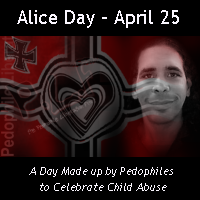Parents are urged to know signs, empower kids to talk
How could any adult in any community molest multiple children over several years, even decades, without getting caught?
"The simple answer is because nobody told," said Sylvia Victor, a Modesto marriage and family therapist who has worked for 20 years with Child Sexual Abuse Services, more commonly known as Parents United. "It happens often, too, that children will tell their parents, but (the adults) can't imagine the person doing such a thing.
"And younger children talk in code. So they may say, 'I don't want to go to Sunday school class.' The child thinks they just told the parents about the abuse, when the parents may think (their child) is just being defiant."
There are two types of child sexual abuse offenders, Victor said.
Fixated pedophiles: "Those are the ones we typically hear about in the news. They have a sexual preference for children. They don't have sexual relationships with adults. They'll have a tendency to (victimize) one gender and at a certain age range. When the child outgrows that age, (the pedophile) will drop that child and go to another one."
Regressed pedophiles: "Basically, they are people who have perfectly normal adult sexual relationships, but somewhere in their lives they get very out of control, and they'll attempt to get control by molesting, because of course, it's easy to control a child."
Fixated pedophiles, Victor said, often will have more victims "because that's their primary sexual outlet." Regressed pedophiles may have only one victim, or could even have a 20-year gap between victims.
"It could be male or female, whatever child is available," she said. This kind of pedophile responds well to treatment, she added.
How do you know if your child is a victim of sexual abuse? According to Victor, the signs of any childhood trauma, which could be something other than sexual abuse, include:
Trouble falling asleep, waking up a lot at night or having nightmares, often about being chased or killed
An increase in anger
Avoiding certain places or people
Sexual play or talk. For example, putting dolls on top of each other in a sexual way or telling parents "information they shouldn't have at that age."
Problems concentrating in school by children who had been doing well
What can parents do?
If you suspect abuse, Victor said, "get them to someone trained in sexual abuse; not all therapists are."
But the first thing parents should do, she said, "is empower their children. They need to talk to their children about good touch, bad touch."
She said information should start early. For example, she said, when she was giving her 1-year-old granddaughter and 2-year-old grandson a bath, the girl reached out and touched her brother's penis.
Victor used the teachable moment to tell her granddaughter she shouldn't be touching that personal part of her brother's body, that it belonged to him. A short time later when the girl again tried to grab him, the boy reinforced the message and said, "No. That belongs to me."
Make sure the children can politely say "no" to adults if they're feeling uncomfortable about something, such as hugging or kissing, Victor said.
"It teaches the children that they don't have to do the yucky things that adults tell them to do if they don't want to," Victor said. Otherwise, she said, children might feel as though they will get
into trouble.
"If you've empowered your children, they're going to tell someone," she said.
Monday, May 5, 2008
Molesters hide behind victims' silence
Labels:
child molester,
child predators,
Child Sexual Abuse,
pedophiles,
safety
Subscribe to:
Post Comments (Atom)






No comments:
Post a Comment